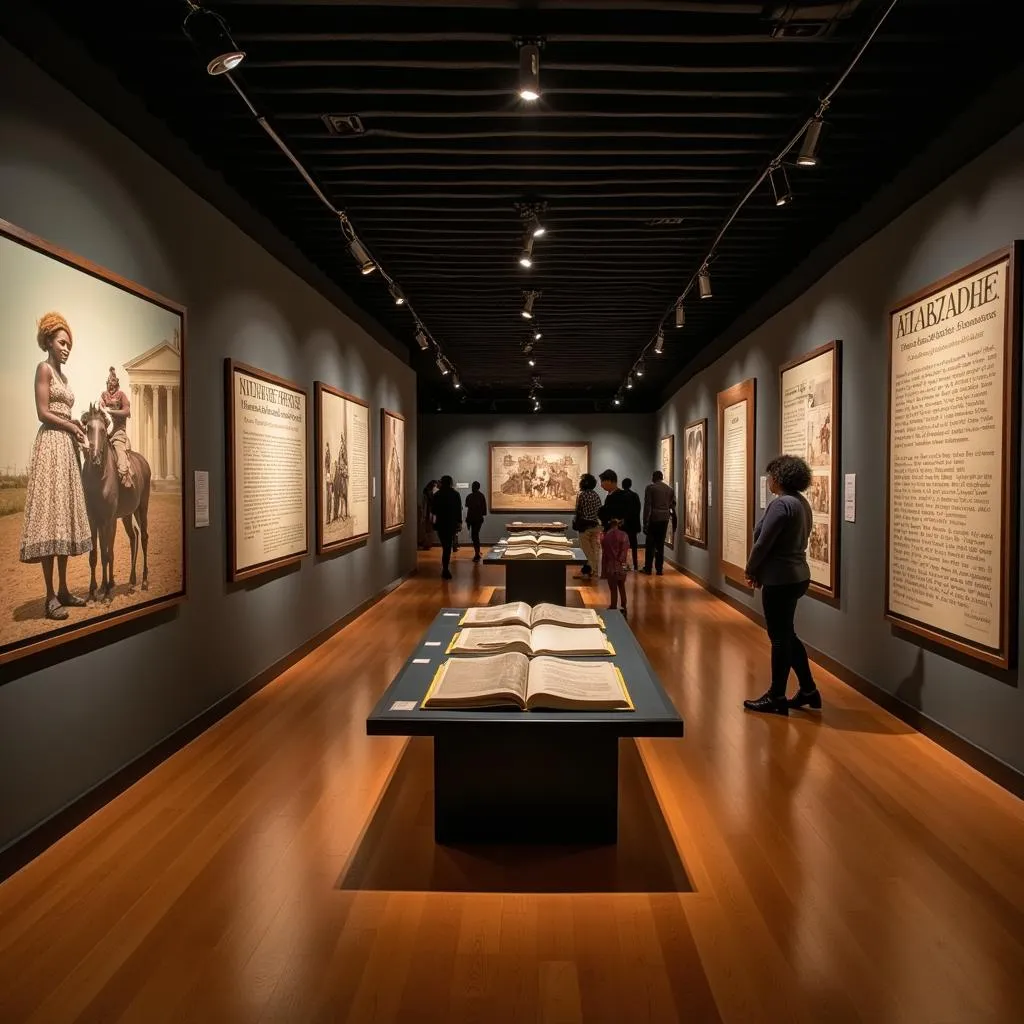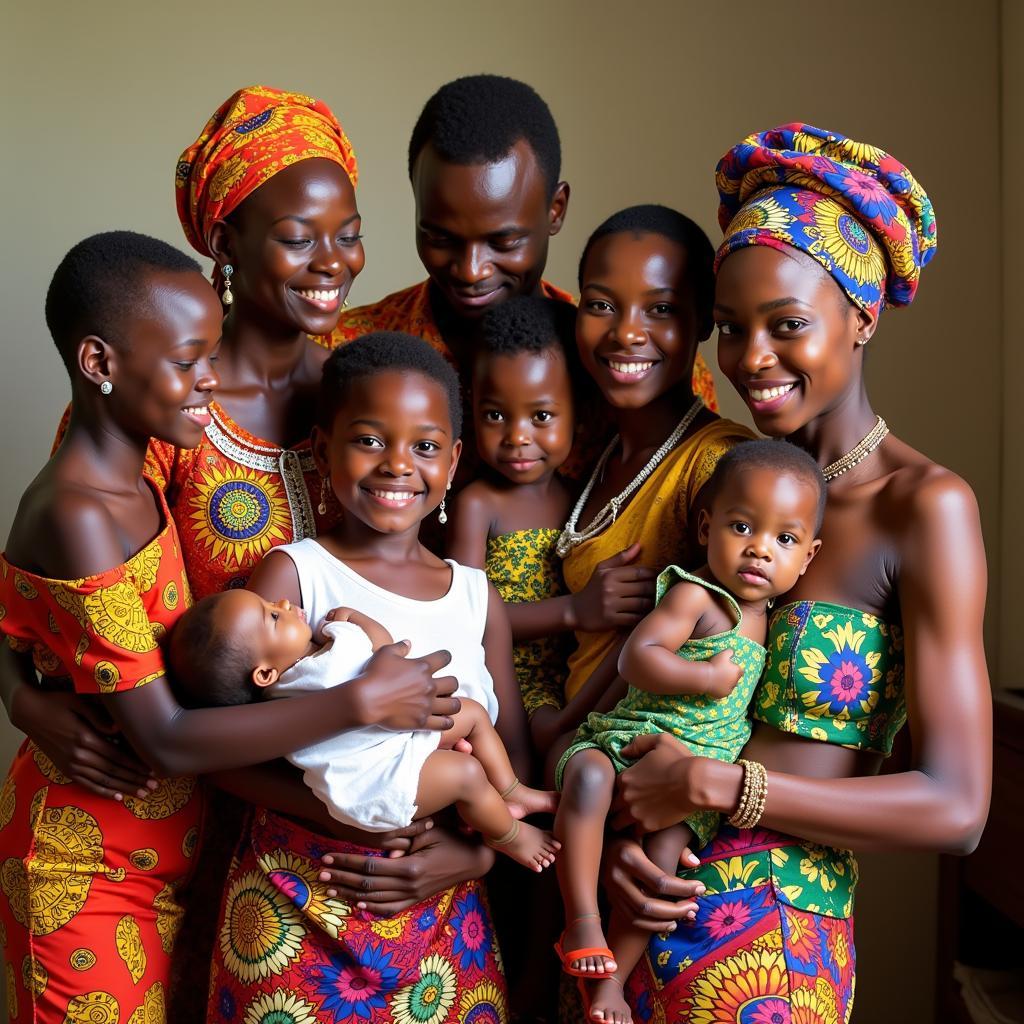African Language to English: A Journey Through Translation and Interpretation
Translating African languages to English presents a unique set of complexities, going beyond simply swapping words. It requires a deep understanding of diverse cultures, nuanced expressions, and the rich tapestry of languages across the continent. This article delves into the fascinating world of African Language To English translation and interpretation, exploring the challenges, strategies, and the importance of preserving cultural meaning.
Bridging the Gap: Understanding the Challenges of African Language to English Translation
Translating from an African language to English is more than just finding corresponding words; it’s about capturing the essence of the original message. One significant challenge lies in the sheer diversity of African languages. With over 2,000 languages spoken across the continent, each with its unique grammatical structures and cultural context, finding accurate equivalents can be demanding. Another hurdle is the lack of comprehensive dictionaries and resources for many African languages. This scarcity makes it difficult for translators to access the necessary vocabulary and grammatical rules, often relying on oral traditions and limited written materials. Furthermore, many African languages are tonal, where the meaning of a word can change based on the pitch used. Conveying these subtle tonal nuances in English, a non-tonal language, poses a significant challenge for translators.
What are the specific challenges? The absence of one-to-one word correspondences, complex grammatical structures unique to African languages, and the oral nature of many traditions all contribute to the complexity.
Navigating the Nuances: Effective Strategies for African Language to English Translation
Despite the challenges, effective strategies exist for bridging the language gap. Collaboration with native speakers is crucial. They provide invaluable insights into the cultural context, idiomatic expressions, and subtle nuances that might be lost in direct translation. Utilizing specialized software and online resources can assist with grammar and vocabulary, but should be used cautiously, always cross-checking with human expertise. Translators also employ techniques like transliteration, where words are converted from one script to another, and adaptation, where the text is modified to fit the target audience’s cultural understanding. Understanding the target audience is equally important. Is the translation intended for an academic audience, a general readership, or a specific cultural group? Tailoring the language and style to the intended audience ensures clarity and cultural sensitivity.
How can technology help? Software can offer support, but human expertise remains essential for accurate and culturally sensitive translations.
Preserving Cultural Heritage: The Importance of Accurate African Language to English Translation
Accurate translation of African languages to English plays a vital role in preserving cultural heritage. It allows access to rich oral traditions, historical documents, and literary works that would otherwise remain inaccessible to a global audience. african countries with english as firt language This accessibility fosters cross-cultural understanding, breaks down stereotypes, and promotes appreciation for the diversity of African cultures. Furthermore, accurate translation facilitates communication and collaboration in various fields, including education, healthcare, and business, contributing to social and economic development across the continent. african countries language english It empowers African communities to share their stories, knowledge, and perspectives with the world.
Why is accurate translation important? It preserves cultural heritage, promotes cross-cultural understanding, and facilitates communication and collaboration.
From Words to Meaning: Exploring the Art of Interpretation
Interpretation, distinct from translation, involves conveying spoken language in real-time. It demands quick thinking, cultural sensitivity, and the ability to adapt to different communication styles. Interpreters working with African languages face the added challenge of interpreting tonal languages and navigating diverse dialects. african countries with english as official language They must be adept at conveying not just the words, but also the underlying meaning, cultural context, and emotions expressed by the speaker. Successful interpretation requires extensive training, practice, and a deep understanding of both the source and target languages and cultures. african a english It’s a dynamic process that requires active listening, cultural mediation, and the ability to bridge communication gaps effectively. african language sounds like english
What skills are essential for interpreters? Quick thinking, cultural sensitivity, and the ability to convey not only words but also meaning and emotion are crucial.
Dr. Abimbola Adebayo, a renowned linguist specializing in Yoruba language and culture, emphasizes, “Effective interpretation requires more than just linguistic proficiency. It requires a deep understanding of the cultural context, social norms, and the unspoken rules of communication.”
Aisha Mohamed, a seasoned interpreter with experience in several East African languages, adds, “The art of interpretation lies in capturing the essence of the message, ensuring that the meaning, emotion, and cultural nuances are accurately conveyed to the target audience.”
Conclusion: Embracing the Richness of African Languages
African language to English translation and interpretation are complex but crucial processes. By acknowledging the challenges, utilizing effective strategies, and prioritizing cultural sensitivity, we can unlock the richness of African languages and foster greater understanding and appreciation for the diverse cultures of the continent. This journey of translation and interpretation not only bridges communication gaps but also contributes to preserving cultural heritage, promoting cross-cultural dialogue, and empowering African voices to be heard on a global stage.
FAQ
- What are some common African languages translated to English?
- How can I find a qualified translator for a specific African language?
- What are the costs associated with African language translation services?
- Are there online tools available for basic African language to English translation?
- How can I learn more about the different African language families?
- What are the ethical considerations in translating African languages?
- How can I ensure the cultural accuracy of an African language translation?
When you need assistance, please contact us by Phone: +255768904061, Email: [email protected] or visit us at Mbarali DC Mawindi, Kangaga, Tanzania. Our customer service team is available 24/7.


